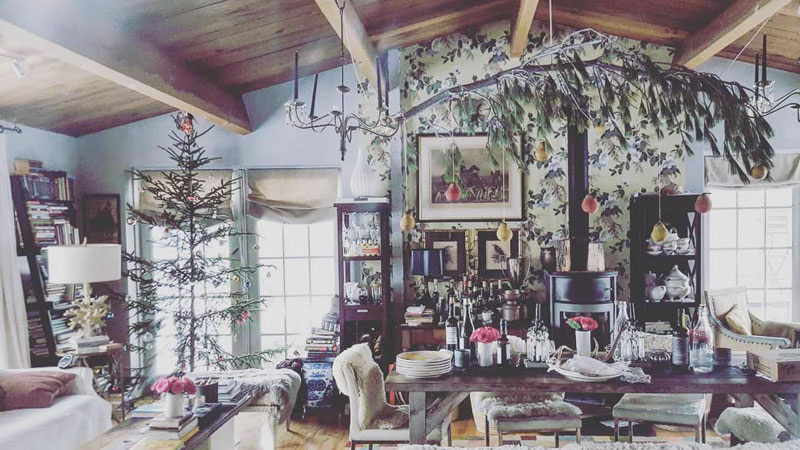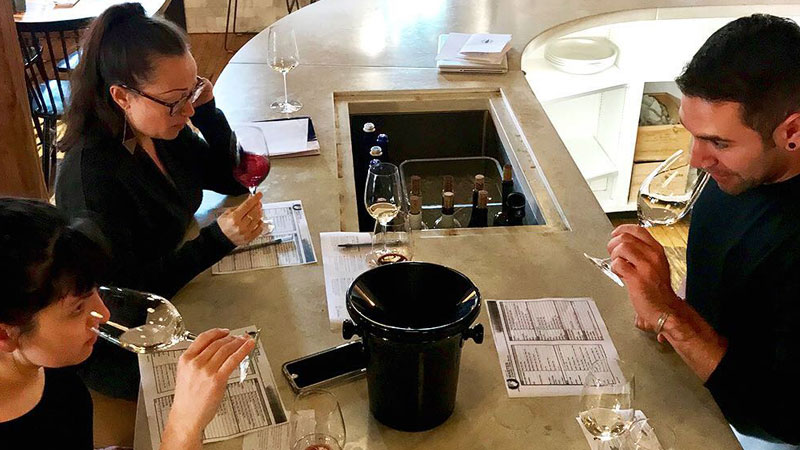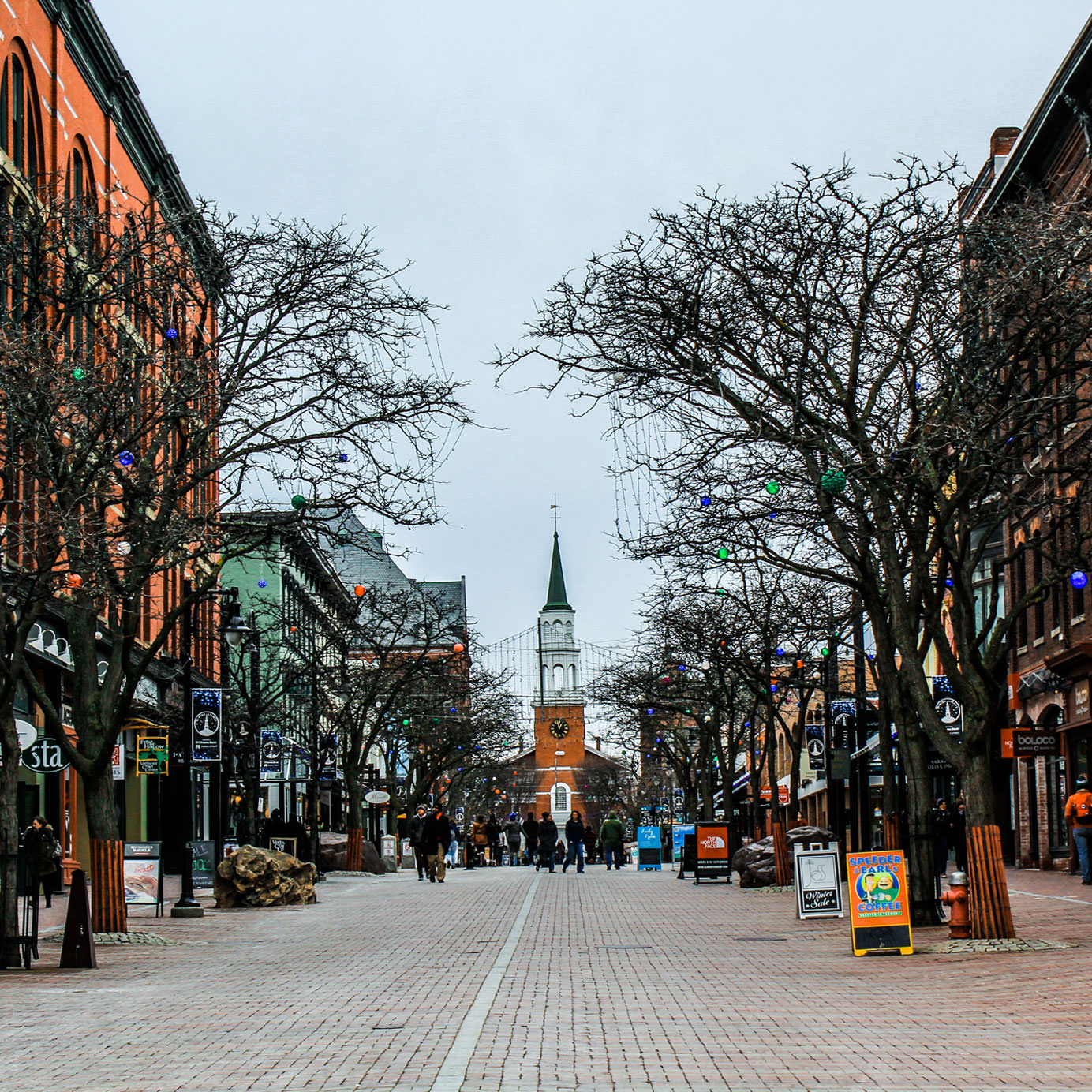
Vermont is one of the top five states for wine consumption per capita, according to the National Institutes of Health. This might surprise weekend skiers or Heady Topper pilgrims, but, for residents of Burlington, Vermont’s largest city, local wine is a way of life.
“The collective passion and excitement for wine is loud here,” Brittany Bennett, a resident and founder of Taartwork Pies, says. “Burlington is a small city but it’s full of people passionate about good food and wine.”
“Burlington is quickly growing beyond its beer roots because there are Vermont producers who are on the leading edge of wine and cider trends,” Eleanor Leger, owner and founder of the Vermont-based Eden Ciders, says. She credits the “retailers and restaurants that do a great job of introducing their customers to these and other great stuff from outside Vermont.”
Vigneron Deirdre Heekin co-owns La Garagista, a small-production, biodynamic winery in central Vermont, making what The New York Times’s Eric Asimov calls “soulful and delicious” wines. Heekin sings the praises of Burlington’s evolving wine community.
“Dedalus, Hen of the Wood, Honey Road, and also the Farmhouse Group, Misery Loves Company, The Bevy (The Beverage Warehouse in Winooski) are all places who have supported and encouraged exciting wine,” Heekin says. She considers Eden Ciders and its new cheese and cider taproom in nearby Winooski part of the movement, too.
“Because of all this energy in Burlington, not only is there an active dialogue about wine within the community itself, but there seems to be a constant stream of interest and new people coming to visit, partake, and dream,” Heekin says.

Located 45 miles south of the Canadian border, Burlington has a little over 42,000 people, which is not huge, but it’s still Vermont’s most populous city. It was the first U.S. city to run entirely on renewable energy and once elected Bernie Sanders as its mayor.
While job growth for locals is fairly stagnant, spending by locals and tourists is going up. Thanks to its proximity to both New York and Montreal, and a stream of new travel coming in, something is brewing (and it’s not beer).
“Burlington has always had incredible local food products at its disposal,” Dana Parseliti, wine buyer at James Beard Award-nominated Honey Road, says. “I think the beverage side of things has really risen up to meet that. The people from Boston and New York and L.A. who come up here are often surprised to see that what we have is as good as — or better — than what they can get where they’re from. It’s been exciting to see things change.”
Change they have. Dedalus Wine Shop, Market, & Wine Bar, now a national destination for cutting-edge wine, embodies the city’s wine evolution.
Dedalus started as a literal backroom bottle shop in 2007, located behind an IT firm. Dedalus co-owner Jason Zuliani and his business partner both worked at said IT firm, and Dedalus’s hours were 3 to 3:15 on Wednesdays. Legally, they had to keep $5,000 of inventory, which they did, comprised of about 15 wines they loved and couldn’t find elsewhere.
A few customers happened upon them by chance. They started to organize tastings, which quickly developed long waitlists. In 2008, they hired their first employee and, in 2017, they opened on Pine Street as a bottle shop, market, and wine bar.
“If we’d opened here even a year earlier, I don’t think we’d have made it,” Zuliani says. Dedalus has since held events with Frank Cornelissen, Marissa Ross, Domaine Tempier’s Daniel Ravier, and more.
“When we’re tasting wine for the store, we’re usually not in a big polished tasting room; we’re in someone’s living room or barrel room,” Zuiliani says. “We visit these places, we meet these people, and they pull back the curtain for us. We’re sitting around someone’s tables — there is food and flowers and smells. The experience is so organic and so real. We want to shorten that distance for our customers.”

If you come to Burlington looking for Pinot Noir or Chardonnay, you will be disappointed. Vermont is just too cold. Hybrid grapes, crosses between hardy native American species and French wine grapes, are what almost everyone works with. Grapes like La Crescent, Frontenac, Brianna, Marquette, and more are what grow here. This is the terroir.
Heekin’s line at La Garagista includes all of the above. The label is, of course, a major attraction. “When we get Deirdre’s wines, we get calls from Paris, from Chicago, from L.A.,” says Zuliani.
“The ranks are doubling with vibrant new winegrowers,” too, Heekin says.
Krista Scruggs, who started ZAFA Wines after studying under Heekin, was recently named a 40 Under 40 Tastemaker and “star of the natural wine world.” Meanwhile, Shelburne Vineyard’s Ethan Joseph bottles his natural wines under the label Iapetus. Rhiannon Johnson of Lincoln Peak just bottled her first native-fermented, skin-contact wine made with La Crescent grapes.
While working with less common grapes could theoretically limit the reach of these talented winemakers, it also opens them up to wider expressions of their craft.
“Everyone already feels like what we’re doing in Vermont is obscure,” Scruggs says. “There’s nothing I’ll do that won’t be out there for somebody.”
Scruggs shares a Co Cellars space with Shacksbury cidery, a few blocks from Dedalus in Burlington. She recently co-fermented ZAFA grapes and Shacksbury apples.
“Apples changed my life,” Scruggs says. “I never wanted to do co-fermentations, but our East Coast terroir is working with both fruits, grapes and apples. What grows together goes together, and we live in this state where both fruits grow.”
She grows more animated as she continues. “We’re pushing the American palate and rethinking what wine should taste like and what it looks like,” Scruggs says.
“This community works together and supports each other, and it’s exciting to all be working together towards the same goal.”
